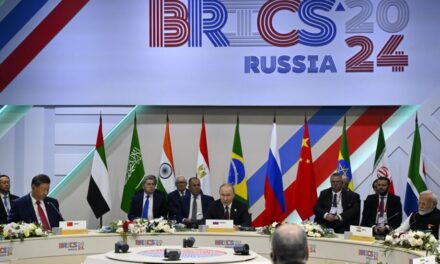Paul Keating, who served as Australia’s Prime Minister from 1991 to 1996, has been one of the most outspoken critics of Australia’s close alignment with the United States.
His concerns centre on the belief that Australia’s sovereignty and independent decision-making are at risk of being compromised by an over-reliance on U.S. foreign policy and military power.
Keating’s views are shaped by his deep understanding of international relations and his vision of Australia’s role in the Asia-Pacific region.
Keating’s Concerns About U.S. Influence
Keating has long argued that Australia’s close ties with the U.S. could lead to a situation where the country is drawn into conflicts that are not in its own national interest.
He has particularly criticized the idea that Australia should follow the U.S. lead in matters of global security without critically assessing the potential consequences for its own sovereignty and regional stability.
According to Keating, this alignment risks turning Australia into a mere “deputy sheriff” for U.S. interests in the Asia-Pacific region, rather than an independent actor with its own strategic priorities.
A key aspect of Keating’s critique is his concern that Australia’s foreign policy is too often shaped by its relationship with the U.S., rather than by its own national interests and the realities of its geographical location.
He has argued that Australia’s strategic focus should be more closely aligned with its regional neighbours in Asia, particularly given the rise of China as a major global power.
Keating believes that by overly relying on the U.S., Australia may miss opportunities to forge stronger ties with its Asian neighbours and to play a more significant role in regional diplomacy.
The AUKUS Pact and the Risk of Entanglement
One of Keating’s most vocal criticisms in recent years has been directed at the AUKUS security pact, a trilateral agreement between Australia, the United Kingdom, and the United States.
Announced in 2021, AUKUS is intended to enhance defence cooperation between the three countries, including the development of nuclear-powered submarines for Australia.
While the Australian government has touted the agreement as a significant boost to national security, Keating has warned that it could have serious implications for Australia’s sovereignty.
Keating has argued that AUKUS could entangle Australia in U.S.-led military conflicts, particularly in the context of rising tensions with China.
He has expressed concern that the pact could make Australia a target for adversaries, as it would be seen as an extension of U.S. military power in the region.
In Keating’s view, this diminishes Australia’s ability to pursue an independent foreign policy and increases the risk of being drawn into conflicts that do not serve its national interests.
Furthermore, Keating has questioned the wisdom of relying on nuclear-powered submarines, which he sees as a provocative move that could escalate tensions in the region.
He believes that Australia’s security would be better served by focusing on diplomacy and building stronger relationships with its Asian neighbours, rather than by acquiring military capabilities that tie it more closely to U.S. strategic objectives.
The Vision for an Independent Australia
At the core of Keating’s critique is his vision of Australia as an independent, sovereign nation that is not beholden to any single power.
He has consistently advocated for a foreign policy that is more attuned to Australia’s unique position in the Asia-Pacific region, rather than one that simply follows the lead of the United States.
This vision is informed by Keating’s belief that Australia’s long-term security and prosperity depend on its ability to navigate the complex dynamics of the region, particularly as China’s influence continues to grow.
Keating’s advocacy for a more independent foreign policy is also rooted in his broader views on Australia’s identity and place in the world.
He has argued that Australia should see itself as a confident, self-reliant nation that can make its own decisions and chart its own course.
This means not only building stronger ties with regional neighbours but also ensuring that Australia’s strategic decisions are made in its own best interests, rather than being driven by the demands of a powerful ally.
Justifications and Reasoning
Keating’s reasoning is based on a pragmatic assessment of Australia’s strategic environment and the evolving balance of power in the Asia-Pacific region.
He recognizes that while the U.S. alliance has been a cornerstone of Australia’s security, the changing global landscape requires a reassessment of this relationship. In particular,
Keating has pointed out that Australia’s future will be increasingly shaped by its relationships with Asian countries, and that a foreign policy overly dependent on the U.S. could limit Australia’s ability to engage effectively with its regional neighbours.
Keating also justifies his concerns by highlighting the potential costs of being too closely aligned with U.S. military objectives. He argues that Australia’s involvement in U.S.-led conflicts, such as the wars in Iraq and Afghanistan, has not necessarily enhanced its security and may have even exposed it to greater risks.
By contrast, Keating believes that a more independent foreign policy, focused on regional engagement and diplomacy, would better serve Australia’s long-term interests.
Conclusion
Paul Keating’s critique of Australia’s relationship with the U.S. is a powerful reminder of the need for a balanced and independent foreign policy. While acknowledging the importance of the U.S. alliance, Keating warns against the dangers of over-reliance on a single partner, particularly in an increasingly complex and multipolar world. His concerns about Australia’s sovereignty and his calls for a more nuanced approach to foreign policy continue to resonate, particularly as Australia navigates its place in a rapidly changing global order.






